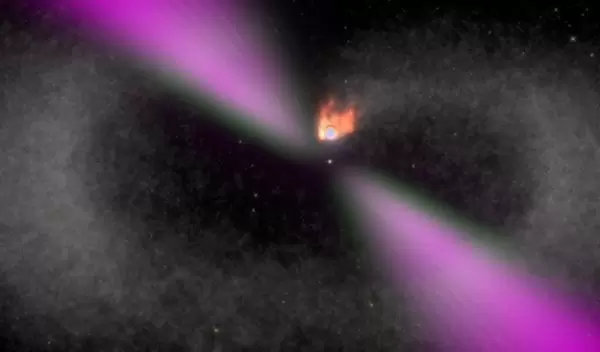
Astronomers find star system that may be a rare 'black widow' binary
Astronomers conducting research funded in part by the U.S. National Science Foundation have discovered what could be a "black widow" binary 3,000 light years from Earth. It’s known as ZTF J1406+1222. A black widow binary is a neutron star that spins rapidly as it slowly destroys and consumes its companion star.
The astronomers propose that the unique star system could be the result of a cluster of old stars created by an intense gravitational pull, known as a globular cluster, that was later torn apart by gravity as it traversed the Milky Way. The black widow binary survived the event. The astronomers also discovered that ZTF J1406+1222 has a distant star that orbits the system once every 10,000 years.
"It's a complicated birth scenario," said Kevin Burdge of MIT, lead author of the study. "This system has probably been floating around in the Milky Way for longer than the sun has been around."
Until this breakthrough, black widow binaries were detected through their radiation emissions. ZTF J1406+1222 was revealed by the optical flashing of its companion star, the first discovery via emitted illumination.
"This system is unique as far as black widows go, because we found it with visible light, and because of its wide companion, and the fact it came from the galactic center," Burdge continued. "There's still a lot we don't understand about it. But we have a new way of looking for these systems."
The team observed the brightness of stars in a search for indications of a companion star closely orbiting a neutron star, and found an object that led to the discovery of ZTF J1406+1222. The astronomers have not detected gamma or X-ray emissions from ZTF J1406+1222, inconsistent with other black widow binaries.
"The one thing we know is that we see a star with a day side that's much hotter than the night side, orbiting around something every 62 minutes," Burdge said. "Everything seems to point to it being a black widow binary. But there are a few weird things about it, so it's possible it's something entirely new."
The scientists will continue to observe ZTF J1406+1222 and hope to reveal as yet unidentified neutron stars and black widow binaries.


